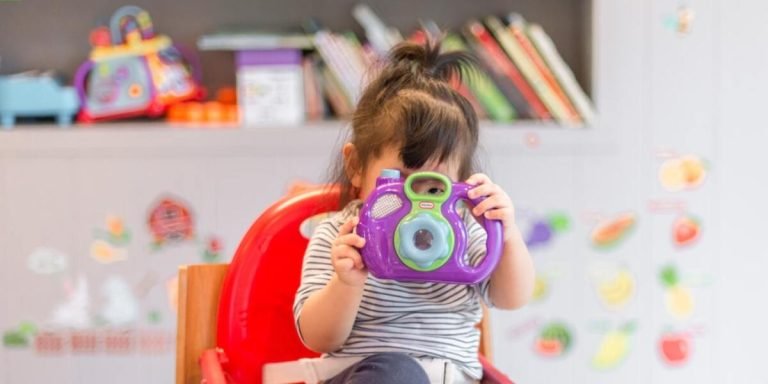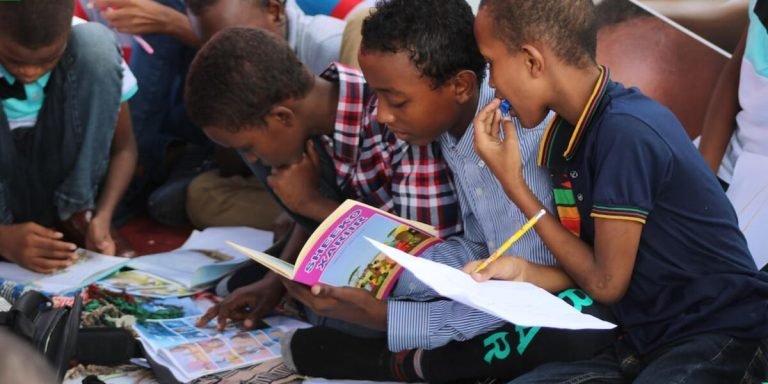Daycare Hours: Understanding Their Impact on Childhood Development
The correlation between ‘daycare hours’ and childhood development is a subject of major concern for many parents. While the debate on this issue never seems to quell, an increasing body of research suggests that daycare hours indeed have considerable effects on various aspects of child growth and learning.
In our fast-paced society where both parents often work full-time jobs, daycares play a pivotal role in molding children’s intellectual abilities during their formative years. This blog post examines how the duration spent at these institutions can shape kids mentally, emotionally, socially, and physically – all integral components contributing to well-rounded early childhood education.
Did you know?
Did you know? The National Institute for Early Education Research asserts that children in full-day pre-schools demonstrate better cognitive and social-emotional development than their half-day peers.
Understanding Daycare Hours: A Guide for Parents
As a parent or guardian, understanding “daycare hours” can often seem like an enigma. In the modern era of 2023, childcare centers have become more than just places for your child to spend their day while you’re at work—they’ve morphed into educational institutions that offer structured learning experiences. Grasping this concept is pivotal as it helps in choosing the right facility and planning your daily routine effectively.
When we talk about daycare hours, it’s important not only to consider how long children are physically at these facilities but also understand what activities they engage in during those slots. Encapsulating technology integration in education has taken childhood pedagogy by storm—providing youngsters with interactive learning tools and digital resources that stimulate intellectual growth beyond traditional methods.
Given its significant role shaping early childhood education today, parents would do well ensuring their selected daycare center dedicates ample time towards tech-assisted lessons within standard operating periods. Not only does this nurture cognitive abilities from an infant stage but bolsters technological literacy – preparing them better for future academic pursuits.
Typical Daily Schedule in Early Childhood Education Centers
The realm of early childhood education has undergone a significant transformation in recent times. Today’s daycare centers are not just about babysitting; they have become nurturing grounds where your child learns and grows while exploring their interests.
Firstly, there’s an established routine designed to put children at ease since it offers predictability. Though the exact timetable may differ from one institution to another, most schedules revolve around similar themes that blend learning with fun activities.
Most days start between 6:30 AM -8:00 AM as parents drop off their little ones before heading out for work. This period is typically laid back involving free playtime allowing children time to acclimate and settle down comfortably.
Post settling comes breakfast followed by organized instructional time which spans from mid-morning till lunch hour around noon. During this window, educators engage kids in various cognitive-enhancing activities structured according to age groups ranging from story-time sessions for younger toddlers up through hands-on educational games promoting literacy or numeracy skills among older preschoolers using technology integration tools such as interactive digital screens or child appropriate software programs tailored towards learning.
Important Considerations When Choosing Daycare Timing
Choosing the right daycare hours for your child can play a pivotal role in their early childhood education. There are several factors you must consider to ensure it aligns with the developmental needs of your young one, and also fits within your family’s schedule.
The first factor to note is consistency. The stability that comes from following a regular routine enhances children’s sense of security and predictability. Try picking consistent daycare hours so that dropping off and pick-up times fall into an established daily pattern— greatly benefiting both you as parents, but more importantly promoting emotional wellness in youngsters.
Secondly, reflect upon how these selected timings coincide with peak energy levels of your child during various parts of the day. Children usually have high-energy periods followed by quieter intervals throughout the day; thus finding a balance between active playtime slots at daycare versus quiet restful time can be beneficial to maintaining this rhythm.
Consideration should be given towards maximizing exposure towards social interactions as well: interaction builds crucial relationship skills for later years! Daycare provides an excellent opportunity for little ones to interact with peers outside home environments – hence choosing those timing-slots where maximum engagement happens could amplify learning potentials substantially!
The Impact of Daycare Hours on Child Development
The advent of technology has revolutionized numerous sectors, and childhood education is no exception. In particular, daycare centers have started integrating technology into their schedules to provide a more comprehensive learning experience during the essential daycare hours.
Daycare hours play an integral role in child development: they lay the foundation for cognitive growth by stimulating creativity, critical thinking skills and problem-solving abilities. The integration of technology within these precious hours can enhance developmental outcomes significantly. Educational apps, interactive e-books or digital video contents are some examples that may be utilized during this period to promote active engagement among children.
While screen time should always be controlled under this age bracket considering its potential harmful effects on physical health like sedentary lifestyle leading to obesity as well as harming vision; it’s also undeniable that technological devices when used effectively with moderation and supervision would not only seize mundane periods but will stimulate curiosity within youngsters helping them explore new fields early on instilling love for lifelong learning.
In conclusion, recognizing the importance and impact of daycare hours on child development coupled with appropriate usage of educational technologies could result in enriching experiences fostering academic readiness while nurturing important life skill sets crucial in 2023 where our societies continue advancing rapidly towards hyper-digitization.
Structured Routines and Their Role in Learning Outcomes
In laying a solid foundation for early childhood education, daycare hours prove to be more critical than one might assume. Specifically, their relation to structured routines and learning outcomes is noteworthy.
Structured Routines play an essential role in the overall development of children attending daycare centers. They help create a predictable environment that aids young minds in developing key skills necessary for academic success as well as life beyond school premises.
Firstly, these scheduled activities instill time management skills into youngsters from an early age. By adhering consistently to certain routines such as snacking times or nap breaks during specific daycare hours, children become accustomed to following timelines – setting them up for understanding punctuality and respect towards others’ time too.
Secondly, interacting with peers during allotted slots allows unity work on social interaction capabilities- leading not only improved interpersonal relations but also empathy building among kids – both which are vital traits required at various walks of life.
Thirdly, having established daily tasks imparts responsibility lessons onto little ones – giving them ownership over actions they undertake within set rosters ensures better task execution on part apart from breeding self-reliance eventually.
Interestingly enough though it isn’t just about mental prowess; physical growth factors cannot be ignored when discussing child development either.
Balancing Playtime with Educational Activities within Limited Hours
Balancing playtime with educational activities within daycare hours is crucial for a child’s overall development. The challenge educators and parents face is how to seamlessly integrate these elements into the relatively limited time frame. This section delves deeper by providing insight into some effective methods.
Firstly, structured play plays an irreplaceable role in children’s growth as it promotes creativity, problem-solving skills, and social interaction. Including games that encourage team-building or mimic real-life scenarios can ignite curiosity while subtly teaching valuable lessons about cooperation and empathy.
However, equally important are academic-inclined activities designed meticulously around kindergarten curricula. Implementing interactive learning techniques specific to reading comprehension or basic arithmetic helps prepare youngsters for formal schooling ahead.
With steady advances in technology integration in education now making their mark even at pre-school levels there’s plenty of scope for innovation too! Interactive digital storybooks can merge playful narratives with age-appropriate literacy tasks; online art platforms may enhance creative expression alongside fine motor skill development; virtual experiments add thrill yet simplify complex STEM concepts interestingly – all within those few daycare hours!
Moreover, introducing regulated screen-time also prepares them gradually but responsibly towards digital media navigation – a vital 21st-century competency indeed! Remember though – adult supervision here remains paramount both from safety perspective plus ensuring purposeful utilization only adding value not trivial distraction.
Optimizing Your Child’s Experience Within Set Daycare Hours
For parents and educators alike, optimizing a child’s experience within the set daycare hours takes on paramount importance. In an era marked by rapid advancements in technology, integrating tech-based learning tools into early childhood education has become increasingly essential.
Daycare isn’t just about keeping children safe while their parents are at work; it plays an integral role in shaping young minds during those critical foundational years. With limited windows during which these youngsters attend daycare—often six to eight hours—it is crucial to harness that time optimally for constructive cognitive development.
Enter Technology Integration. This refers not merely to introducing computers or tablets but weaving sophisticated digital mediums throughout the curriculum, all aimed at nurturing creativity and curiosity as well as bolstering essential skills like problem-solving and analytical thinking. Interactive software programs tailored towards preschoolers combine play with pedagogy—a unique blend of fun-filled learning experiences designed explicitly around adapting according to each child’s individual pace.
Early exposure to such technology-rich environments doesn’t mean swapping storybooks for screens but supplementing traditional teaching methods with innovative platforms—all within specified daycare hours—that meet kids where they live: A digitally infused world!
Henceforth, ensure your child’s daycare facility recognizes this trend toward digitization even amidst warm hugs and nap routines! Make certain they employ interactive educational technologies wisely & effectively enabling toddlers grasp basic concepts more smoothly yet retain much-needed playful elements intact.
Strategies to Maximize Learning Opportunities
In the modern world, technology is embedded in nearly every aspect of our lives. It’s no surprise that it has impacted early childhood education as well. With daycare hours often falling within a working parent’s schedule, making the most out of those limited periods becomes crucial.
One important strategy involves integrating digital tools and applications into playtime activities for children under five years old. This can be achieved through educational tablets pre-loaded with age-appropriate games or interactive storybooks which enhance cognitive skills while simultaneously entertaining them during their daycare hours.
Online learning platforms are another excellent resource to tap into during restricted daycare hours. They offer an abundance of courses tailored specifically towards young learners on subjects ranging from language development to simple science experiments – all at just a click away!
Effective Communication with Caregivers to Enhance Child Engagement
Establishing effective communication within the framework of daycare hours can significantly enhance your child’s engagement level. This strategy is particularly critical in early childhood education, where interaction with caregivers forms a crucial part of developmental progress.
Primarily, it involves creating an open line of dialogue between parents and preschool staff about their children’s daily experiences. It provides insights into what activities interest or challenge them, helping tailor educational methods to individual needs. The process also fosters trustful relationships that positively impact the young learner’s sense of security throughout diverse learning periods encompassed by daycare hours.
At this juncture, technology plays a pivotal role for its proficiency in bridging gaps potentially hindering seamless communication. Advances like digital logs facilitate real-time updates concerning meal times and potty breaks while direct messaging platforms ensure any observations regarding behavioral changes are promptly communicated and addressed.
Moreover, infusing tech tools during instructional time introduces young minds to essential 21st-century skills fitting our fast-paced era correctly defined as ‘The Digital Age’. While smartphones or tablets serve as interactive toys amusing little ones at home; they seamlessly transition into valuable learning devices under guided surveillance within potential daycare hours!
Creating engaging content offering both fun & cognitive stimulation – apps aiming literacy improvement or mathematical understanding works wonders on kids’ natural curiosity whilst enhancing their comprehension ability diligently from an early age! Apps hosting virtual tours ignite imagination beyond physical boundaries – even augmented reality (AR) takes center stage rendering tactile sensory experiences without leaving actual classrooms behind.
Conclusion
In closing, the significance of daycare hours on childhood development is far from negligible. It’s this calculated combination of play, learning and social interactions that molds children into well-rounded individuals; while the consistency in routine keeps them grounded. Never underestimate how these ‘childhood pitstops’ can significantly shape your kid’s growth – physically, socially and mentally.
Life may feel like a whirlwind sometimes with you juggling multiple roles but remember you’re not alone in understanding the conundrum that is early childcare. Our website offers an abundance more information for educators or parents alike navigating through their child’s education journey. So why wait?
Dive right in to gain insights into holistic strategies aimed at fostering efficient learning environments during those crucial daycare hours!







